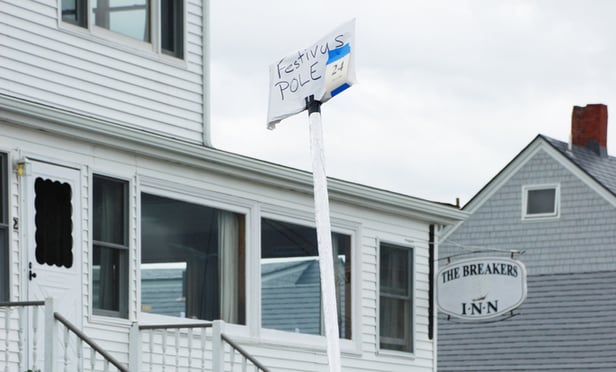Festivus may have started out as a “Seinfeld” satire of the worst aspects of Christmas, but it has bloomed like an oversized poinsettia into something like a real holiday—with potential legal issues for the workplace.
Festivus, according to its website, is a holiday designed to reject the crass commercialism of Christmas—“A Festivus for the Rest of Us.” Its symbol is a plain aluminum pole.
A Festivus celebration can include a holiday dinner, an “airing of grievances” and a showing of feats of strength. After a winter episode of “Seinfeld” introduced it in 1997, the holiday’s unlikely acceptance has spread.
But are people really taking it seriously? Well, consider that there is a Festivus pole made from aluminum Pabst Blue Ribbon beer cans now standing in the Florida State Capitol building in Tallahassee. It was placed there by Chaz Stevens, who obtained the necessary state permit to do so.
Stevens told NPR last week that he raised the pole after the state allowed another group to exhibit a nativity scene. “This is about separation of church and state,” Stevens explained.
Then one blogger posted a message from a worker asking how his boss could deny his request to set up a Festivus pole in the office while allowing a Christmas tree, a Hanukkah menorah and a Kwanzaa display.
The blogger, former employment lawyer turned human resources consultant Jim Webber of Kirkland, Wash., didn’t offer the reader much solace.
“Many Festivus poles are not installed in a safe manner and could create hazardous conditions for unwary workers,” he wrote. Then, more tongue in cheek, he added, “Second, I would hate to see the warm, family-oriented nature of the day spoiled by moving celebrations from private homes to the office.”
But another employment law blogger, Jonathan Hyman of Kohrman Jackson & Krantz in Cleveland, pointed out that federal law requires an employer to make reasonable accommodation for a person’s religion, including atheism.
“So, if the employee requesting a workplace Festivus pole is doing so as an expression of … atheism, then you should think long and hard before you deny the request,” Hyman wrote.
Then he added, “If you are lucky enough to work for a company that embraces this holiday, consider it a Festivus Miracle.”
Merry Festivus, everyone, especially to the general counsel who has to decide between taking Webber’s advice or Hyman’s!






